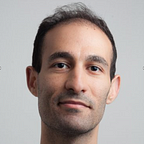This Is Your Brain on the Internet
We know where to find information — we just can’t remember it anymore
The Earth has never witnessed a more seamless tool for knowledge-sharing than the internet. Word-of-mouth is a great way to send knowledge from one brain to another, and the internet allows us to do this with practically any source of information in an instant, from one side of the world to the other. But as Uncle Ben says in Spiderman, “with great power comes great responsibility.”
Our frictionless information sharing has become a bit of a pain. We’re reluctant to invest time in checking the validity of each piece of news we find, and this leaves a lot of dishonest or misleading material circulating around in our brains, potentially changing our behavior in dysfunctional ways. Learning is a great and productive tool when it teaches us what is true about the world, helping us to better navigate it. It’s not so great when it teaches us a falsehood. If we learn that marshmallows are good for building electronic machines, for example, we won’t get very far. But if we learn that silicon is good for building electronic machines, we get the smartphone.
True and false news spread differently across the world of social networks. Falsehoods tend to be more novel and unique in their messages (they are being invented after all)…
